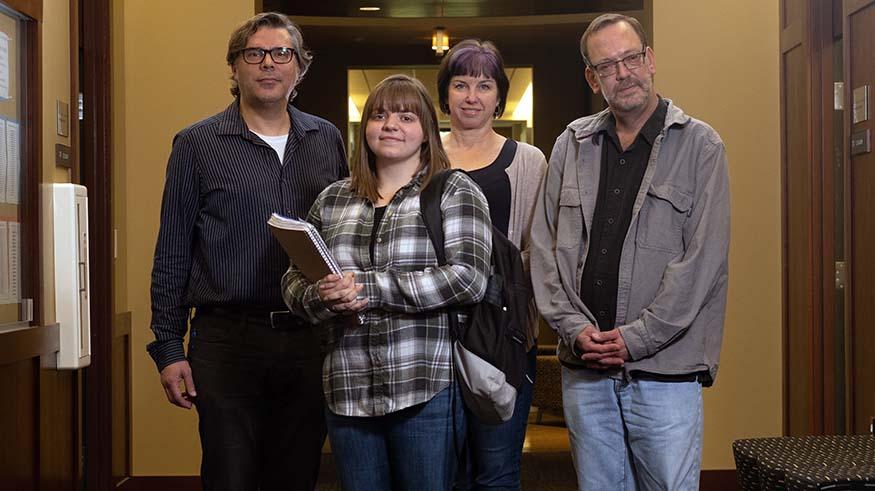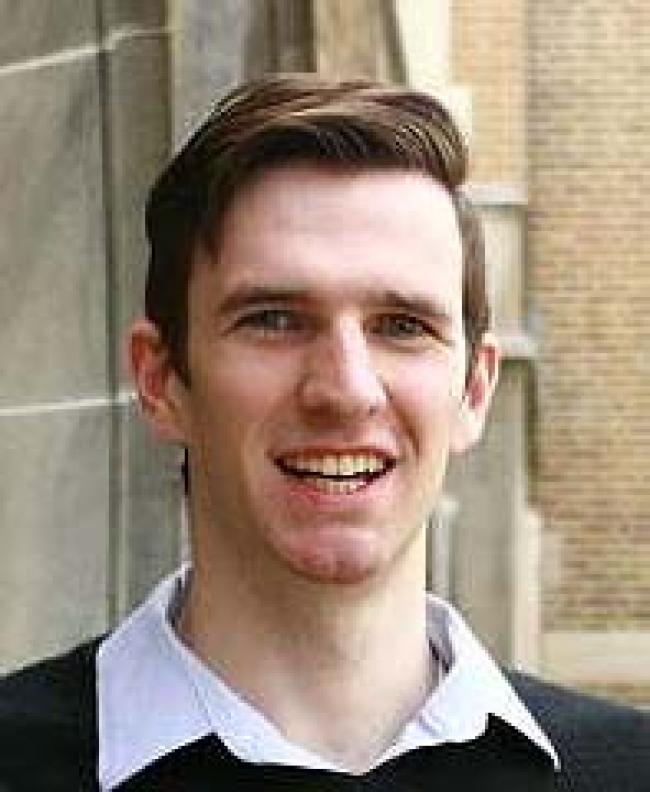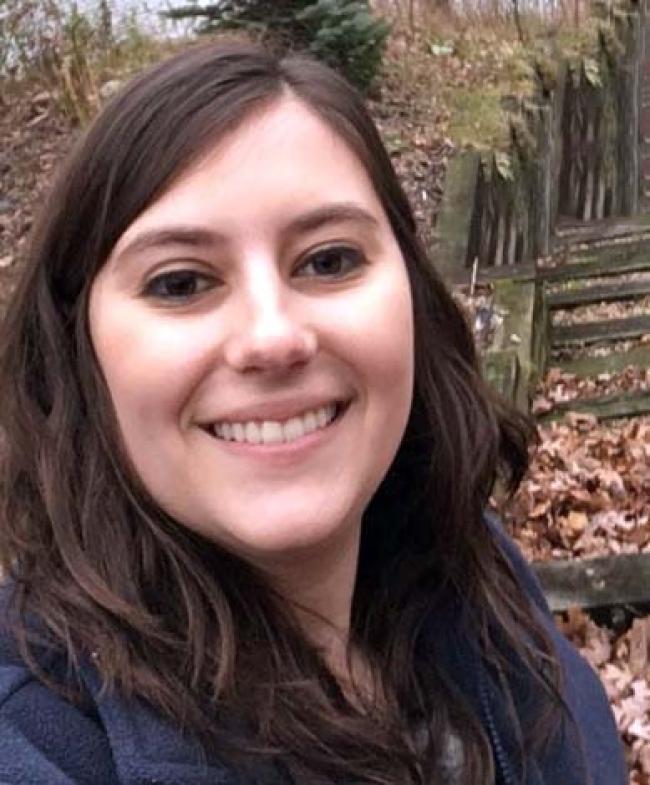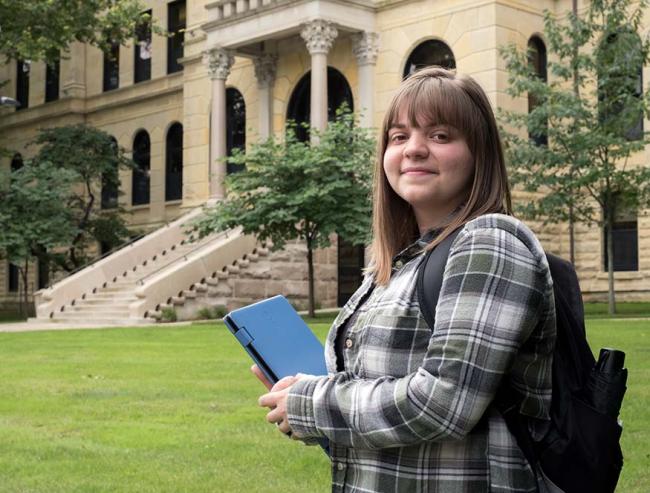
A major to make you stand out
Here’s a college major that makes you a serious problem-solver and superior writer.
And it’s an attention-getter that shows would-be employers that you are curious and creative.
It’s Classics.
That’s what Augustana students are finding as they take their Latin and Greek into careers and graduate school.
For example, Katelyn Farrell will graduate in May as an accounting and Classics major. She has an accounting job at Deere and Co. waiting for her.
“I owe my job offer after graduation at John Deere completely to my Classics major,” she said. “I spoke about my Classics degree in my interview more than my accounting. Employers are intrigued that two completely unrelated fields of study could come together in an education path.
“I have learned that employers are truly looking for candidates who will remain curious. Curious employees are what drive improvements and innovation within companies. My Classics major is my No. 1 tool in marketing my curiosity and willingness to learn completely foreign skills.”

Allan Daly ‘18 graduated with majors in Classics and mathematics and now is working on a master’s degree in health-care research at Dartmouth College.
“I do not know if my Classics major made me stick out when I applied at Dartmouth. I'm sure it caught some people's attention,” he said.
“But it did make me stick out when I applied for the Texas Medical Summer Research Internship Program at Augustana, which was a major selling point when I applied to grad school.”

Kelly Haidinyak ’15 is a senior project specialist at MilliporeSigma, St. Louis. She’s also pursuing a dual MBA/MS degree in science management and leadership at Webster University in St. Louis.
“Being in Classics, students tend to develop strong problem-solving skills,” she said. “This is needed for tasks such as translating literature to writing effective term papers. So often, nothing is ‘black and white,’ and a little extra digging around is needed.
Her job interview included a “trial by fire” activity that called on her to solve a problem in a high-stress situation.
“The first thing I was told after the interview was that I had strong problem-solving skills,” she said. “Well, who do I have to thank but the Classics department for instilling me with the tools to do so!”
Choosing the major
New students often have not considered a Classics major and weren’t exposed to the languages or history in high school.
Farrell took first-year Latin to fulfill a language requirement but hadn’t thought of it as a major until her advisor asked her what would make her stand out from every other accounting student.
“When I couldn't answer the question, she brought up that I was taking Latin as my first-year language,” Farrell said. “She suggested that pursuing this field of study would excite potential employers because it is unique.
“From then on I considered my education to be less of a business transaction to ensure future employment, and more of an opportunity to explore my interest to the fullest.”
Daly thought he’d major in political science, but after taking Latin and Calculus 1 as a first-year student, those two subjects won him over.
Haidinyak also took first-year Latin for a language requirement. She chose it on a bit of a whim, “based on my Mediterranean genealogy,” she said.
But she found herself taking a second year, and then some more.
“Next thing I knew, Dr. Kramer handed me an add-slip and told me I was going to be a Classics major,” she remembered. “After four years of undergrad, I received a bachelor’s degree in Classical studies and chemistry.”

The benefits of languages
Farrell was surprised to find herself using her knowledge of Latin and Greek as an intern with John Deere. She needed to read tax agreements and treaties between that were in various languages.
“Having a background in Greek and Latin equipped me to deal with other foreign languages and understand their structure,” she said. “It made translating foreign documents, or choosing which portions of documents to translate, much easier.”
She added that Latin and Greek are so different from English that learning them boosted her analytical skills.
“Every Latin or Greek sentence is a puzzle that consists of various components. The skills I learned trying to translate in class have extended to problem-solving skills that can be used in any career setting.”
Daly said that while Classics gave him a rich understanding of the world and Western history, its major contribution to his education was better writing skills and vocabulary.
“And an understanding of the English language to a level where I do not know of anything other than learning Latin and Greek can do,” he said. “These are skills that will be vital for the rest of my life.”
Haidinyak used her chemistry and classical studies majors to synthesize information, working one-on-one with Dr. Mischa Hooker to write a Senior Inquiry paper on "Science in Ancient Greece."
“In the end, it was so incredibly rewarding to finish out my senior year by combining the two things I loved the most during my time at Augustana,” she said.
A richer life
All three of Classics majors encourage students to consider this field of study.
“Classics is peering into another world, and although their world seems very different than our own, it encompasses the same topics that are relevant today. I'd say a little curiosity can take a person very far in life,” said Farrell.
“Not only is it a resume booster, but you may find areas within Classics that can relate to other fields of study you are also interested in.”
Daly agreed.
“The knowledge you will learn as a Classics major is both fascinating and timeless. Antiquity struggled with the same problems we face today, and knowing how the past approached a problem allows you to better plan for the future.
“The discipline gives you the freedom to explore different aspects of the past so you can really customize your education.”

